‘The people of Ukraine don’t need your emojis’
Your digest of analysis from the British and international press
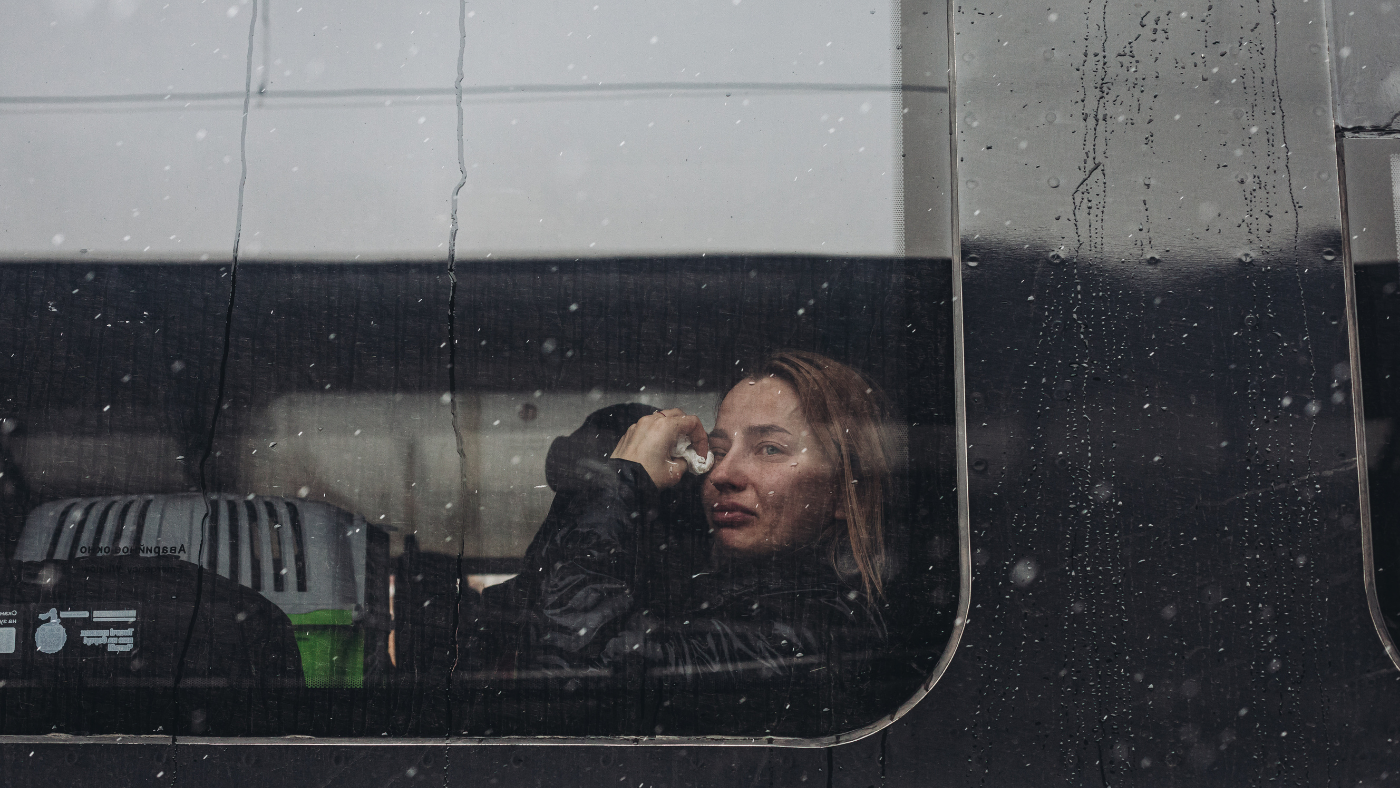
- 1. The me, me, me generation thinks the Ukraine crisis is all about them
- 2. We’re in danger of only young, skinny drag queens getting success the whole community deserves
- 3. At last, Boris Johnson has spotted the difference between good and evil – shame it took so long
- 4. Children can triumph over a sea of troubles
- 5. Russia’s invasion of Ukraine leaves China facing a difficult balancing act
A free daily email with the biggest news stories of the day – and the best features from TheWeek.com
You are now subscribed
Your newsletter sign-up was successful
1. The me, me, me generation thinks the Ukraine crisis is all about them
Judith Woods at The Telegraph
On superficial sympathy
“War. What is it good for? Absolutely nothing,” sang Edwin Starr in 1970. Nothing, “apart, it would seem, from providing the opportunity for outrageous narcissism on social media”, writes Judith Woods at The Telegraph. As “nightmarish events unfold in Ukraine”, some people’s “first instinct is to share their toe-curling poetry, banal platitudes and tone-deaf political pensees on Twitter”. Actor AnnaLynne McCord begins her verse, “‘Dear Putin, I’m sorry I wasn’t your mother.” It would be “acerbically amusing under different circumstances. But not as hellfire is raining down.” Why, asks Woods, do people do this? It’s a myth “that because every individual now has a voice, every individual voice now matters”. Right now, Ukrainians “don’t need your emojis, they need your aid”.
The Week
Escape your echo chamber. Get the facts behind the news, plus analysis from multiple perspectives.

Sign up for The Week's Free Newsletters
From our morning news briefing to a weekly Good News Newsletter, get the best of The Week delivered directly to your inbox.
From our morning news briefing to a weekly Good News Newsletter, get the best of The Week delivered directly to your inbox.
2. We’re in danger of only young, skinny drag queens getting success the whole community deserves
Crystal at Metro
On drag's diversity
“Drag has become more mainstream than ever,” writes drag queen Crystal at Metro. Queens are “fronting fashion campaigns, appearing on catwalks and sitting front row at fashion weeks around the world.” It’s “incredible to see gender diversity and non-conformity being given such a prominent platform,” she writes, with her friends and contemporaries “going boldly where no drag queen has gone before”. But “something’s been nagging at me”, says Crystal. “There is a ‘type’ of queen that achieves mainstream fashion success – namely those who are young, skinny and have a ‘natural beauty’”. Crystal says it seems “more and more that the new gold standard for drag is becoming about commercial appeal”. When this Queen first started out, “part of the draw of drag” was “the promise that anyone could do it and have value and worth”. To brands and corporations “looking to get on board with the drag boom, please consider expanding your ideas about the art form”, she writes.
A free daily email with the biggest news stories of the day – and the best features from TheWeek.com
3. At last, Boris Johnson has spotted the difference between good and evil – shame it took so long
Tom Peck at The Independent
On knowing right from wrong
Boris Johnson has said he “cannot think of a time in international affairs when the difference between good and evil, between right and wrong, has been so obvious”. Tom Peck says, “the trouble is, well, it is possible that it was obvious to other people quite a long time ago, back when it wasn’t so obvious to Boris Johnson.” Writing at The Independent, Peck says that “Johnson did his best to look sympathetic while a highly distressed Ukrainian journalist begged him to launch a no-fly zone over western Ukraine”, but “he couldn’t do it, he said, because it would escalate tensions with Russia”. Johnson is worried “that intervention risks escalation to nuclear war”. So “while the difference between good and evil is incredibly obvious at the current moment”, it’s “something of a shame that the good side didn’t get their act together a bit faster”. All we can hope for now, says Peck, is that “evil has overreached itself, after a very, very long time indeed of not quite being able to believe its luck”.
4. Children can triumph over a sea of troubles
Alice Thomson at The Times
On growing up
“Brexit, Islamist terrorists, a pandemic, masks, disrupted exams, ‘Don’t kill granny’, the disintegration of Afghanistan, catastrophic climate change, a cost of living crisis, a war in Europe and a Russian president talking about nuclear Armageddon.” Alice Thomson thinks it’s “astonishing” what her teenage son’s generation is living through, she writes at The Times. “What did my generation have to cope with before we were 20?” she asks. “Margaret Thatcher stealing our milk, homework by candlelight, my first French exchange”. It all “seems trivial by comparison”. “This century’s children should have been the fortunate generation,” writes Thomson; “now their opportunities seem more bleak as the world lurches from one crisis to the next”. But “our children have already faced many challenges” and maybe “they could become a more resilient, responsible and adaptable generation than their parents” after all.
5. Russia’s invasion of Ukraine leaves China facing a difficult balancing act
James Kynge at The Financial Times
On a potential peacemaker
“What a difference a few weeks make,” writes James Kynge at the Financial Times. In February, Vladimir Putin and Xi Jinping “proclaimed” that “the friendship between Russia and China had ‘no limits’”. But on Tuesday, “it was clear that Beijing – professing to be ‘extremely concerned about the harm to civilians’ inflicted by Russia’s invasion of Ukraine – was starting to attach limits to its affinity with Russia”. The invasion of Ukraine “presents China with an almost impossible balancing act”, writes Kynge. On one hand, “its deep relations with Moscow are classified as a ‘strategic partnership’”, but on the other, the invasion “is in clear opposition to a core Chinese foreign policy tenet that national sovereignty and territorial integrity must be held sacrosanct”. The question now, says Kynge, “is what can China do next”. “It is possible that Beijing may try in coming days and weeks to play up a potential role as a peacemaker.”
-
 Political cartoons for February 19
Political cartoons for February 19Cartoons Thursday’s political cartoons include a suspicious package, a piece of the cake, and more
-
 The Gallivant: style and charm steps from Camber Sands
The Gallivant: style and charm steps from Camber SandsThe Week Recommends Nestled behind the dunes, this luxury hotel is a great place to hunker down and get cosy
-
 The President’s Cake: ‘sweet tragedy’ about a little girl on a baking mission in Iraq
The President’s Cake: ‘sweet tragedy’ about a little girl on a baking mission in IraqThe Week Recommends Charming debut from Hasan Hadi is filled with ‘vivid characters’
-
 Luton Airport bendy buses join Ukraine war effort
Luton Airport bendy buses join Ukraine war effortfeature And other stories from the stranger side of life
-
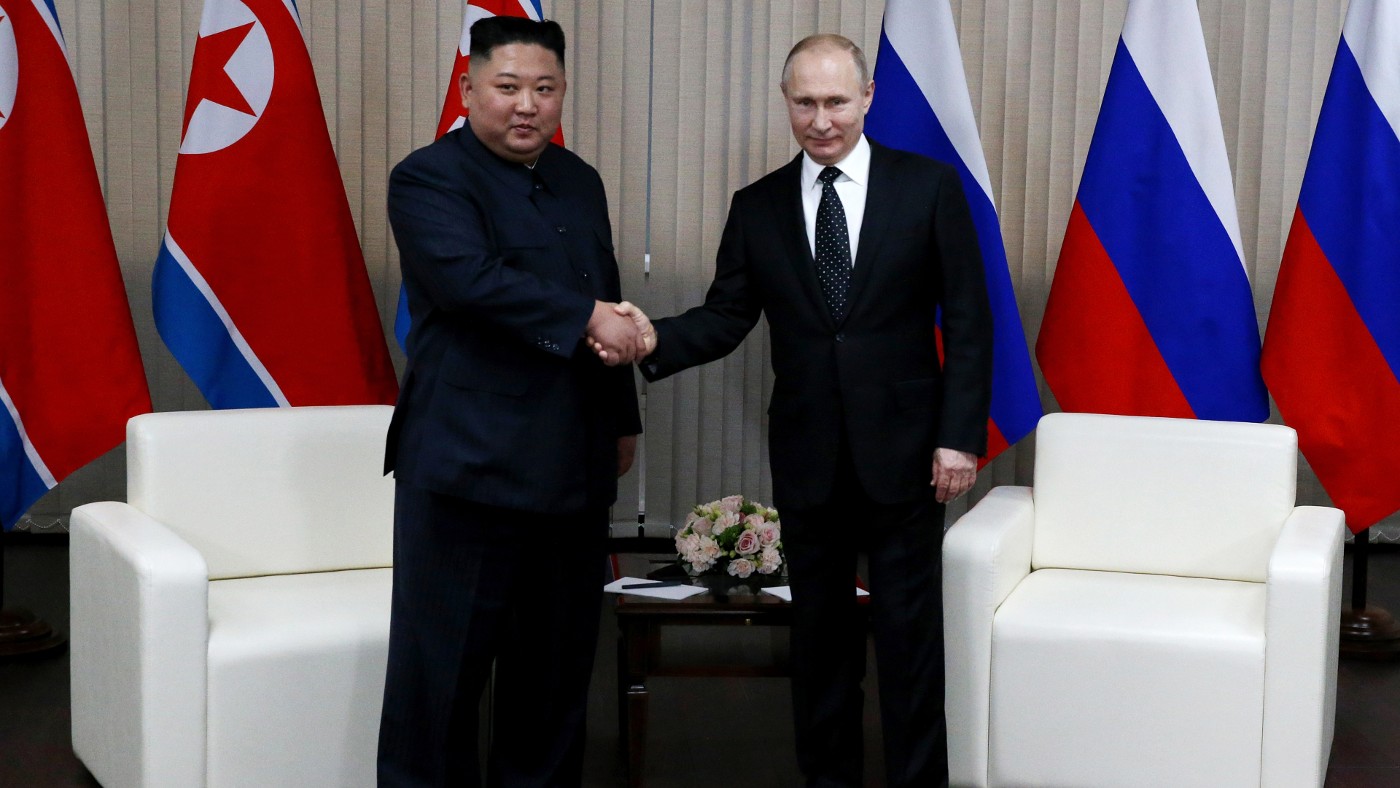 Would North Korean weapons tilt the war Russia’s way?
Would North Korean weapons tilt the war Russia’s way?Today's Big Question Putin wants to boost ‘depleted stocks’ but Pyongyang’s arms may be in poor condition
-
 Nobody seems surprised Wagner's Prigozhin died under suspicious circumstances
Nobody seems surprised Wagner's Prigozhin died under suspicious circumstancesSpeed Read
-
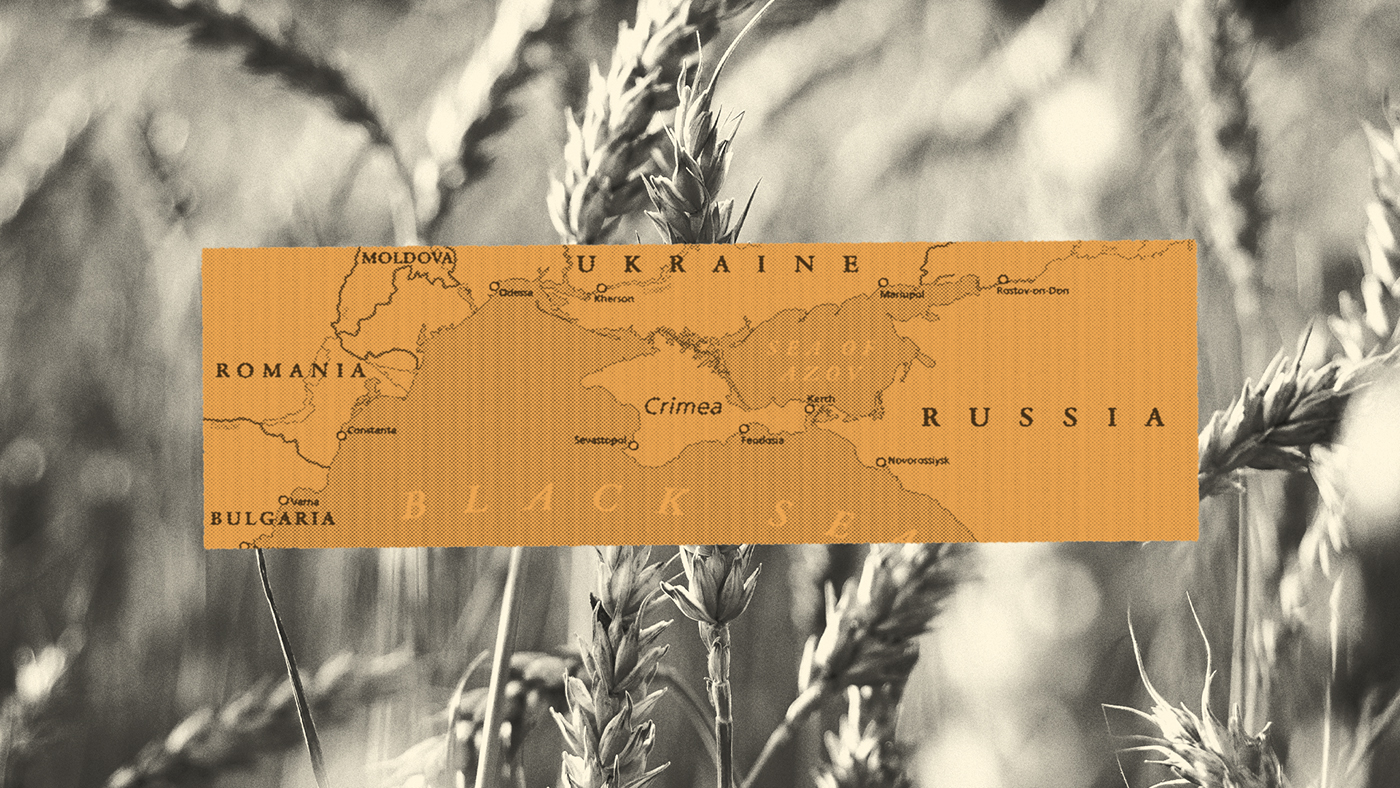 Can the Ukraine-Russia Black Sea grain deal be rescued?
Can the Ukraine-Russia Black Sea grain deal be rescued?Today's Big Question The Kremlin’s termination of agreement has sparked fears among food-insecure countries
-
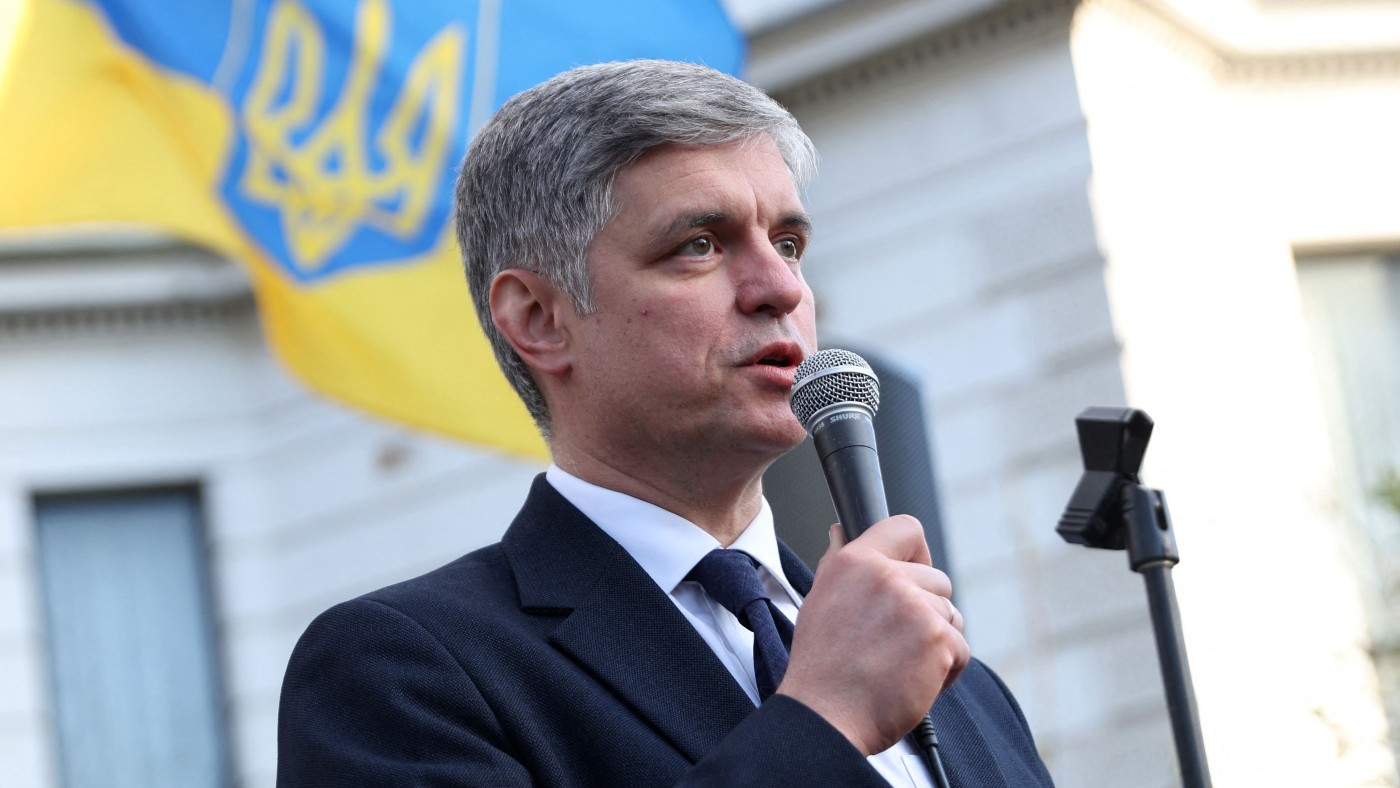 Zelenskyy sacks Ukraine ambassador to UK after sarcasm row
Zelenskyy sacks Ukraine ambassador to UK after sarcasm rowSpeed Read Vadym Prystaiko accused his boss of an ‘unhealthy sarcasm’ in response to British defence secretary Ben Wallace
-
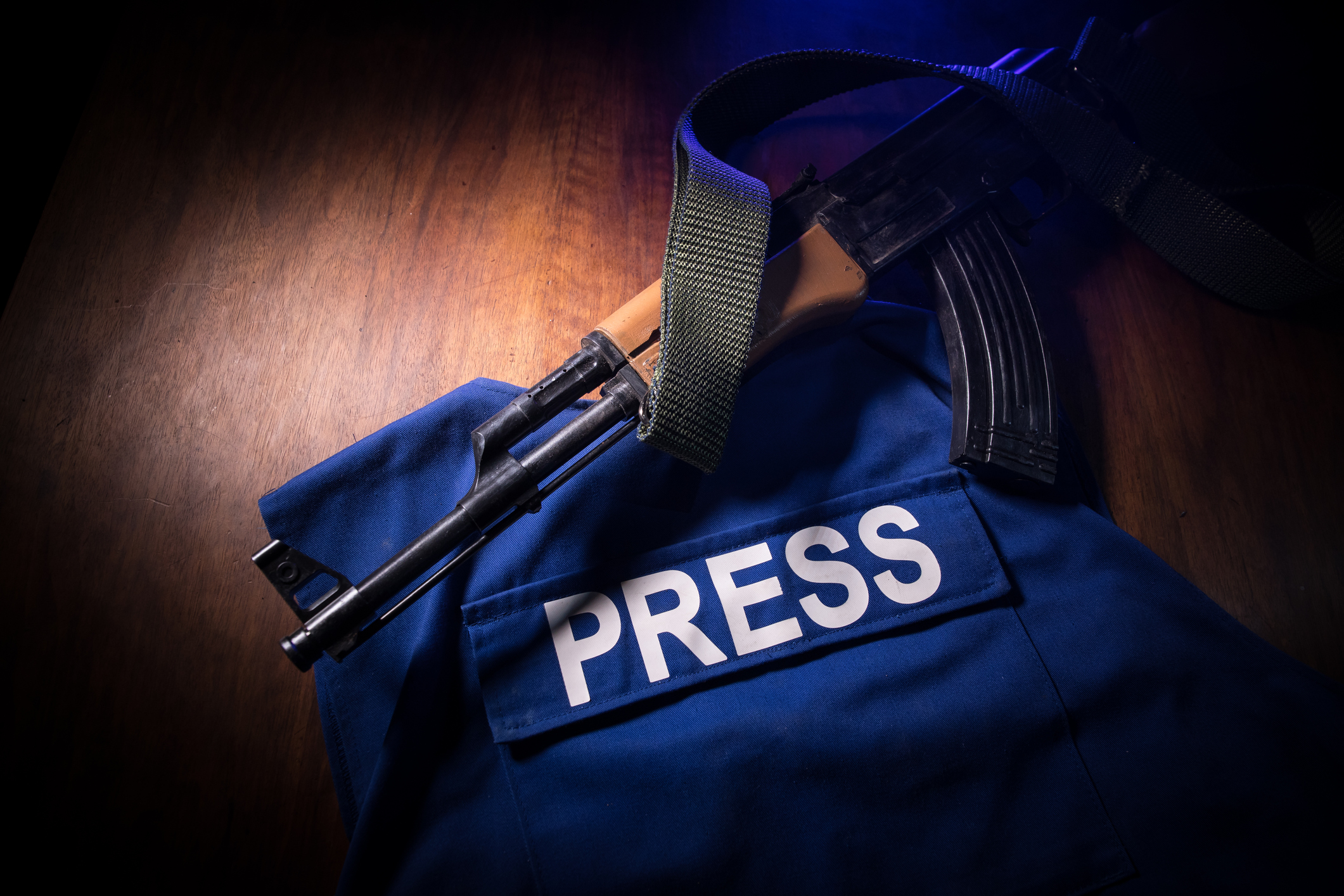 Why journalist deaths continue to rise around the world
Why journalist deaths continue to rise around the worldUnder the Radar Journalist deaths rose sharply in 2022 and don't appear to be slowing down this year
-
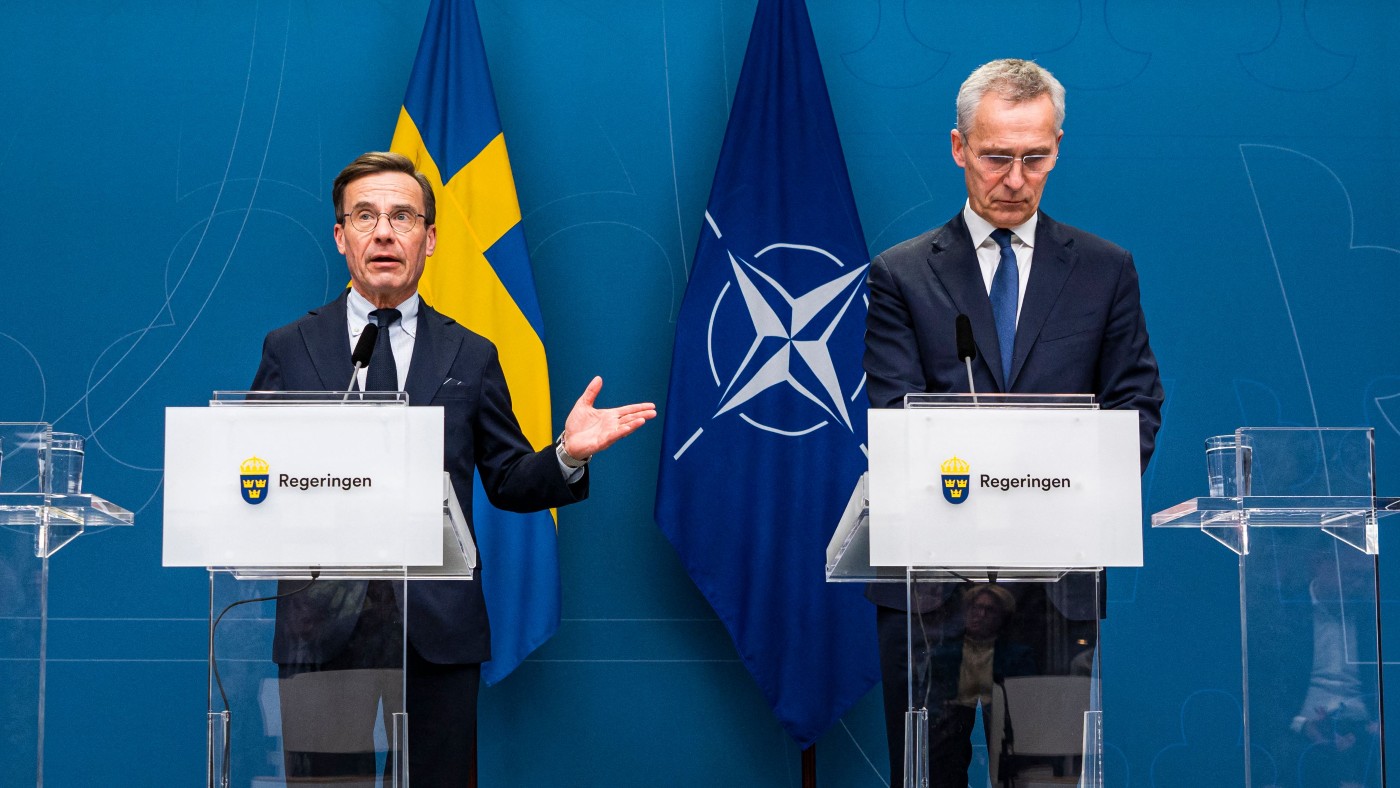 Non-aligned no longer: Sweden embraces Nato
Non-aligned no longer: Sweden embraces Natofeature While Swedes believe it will make them safer Turkey’s grip over the alliance worries some
-
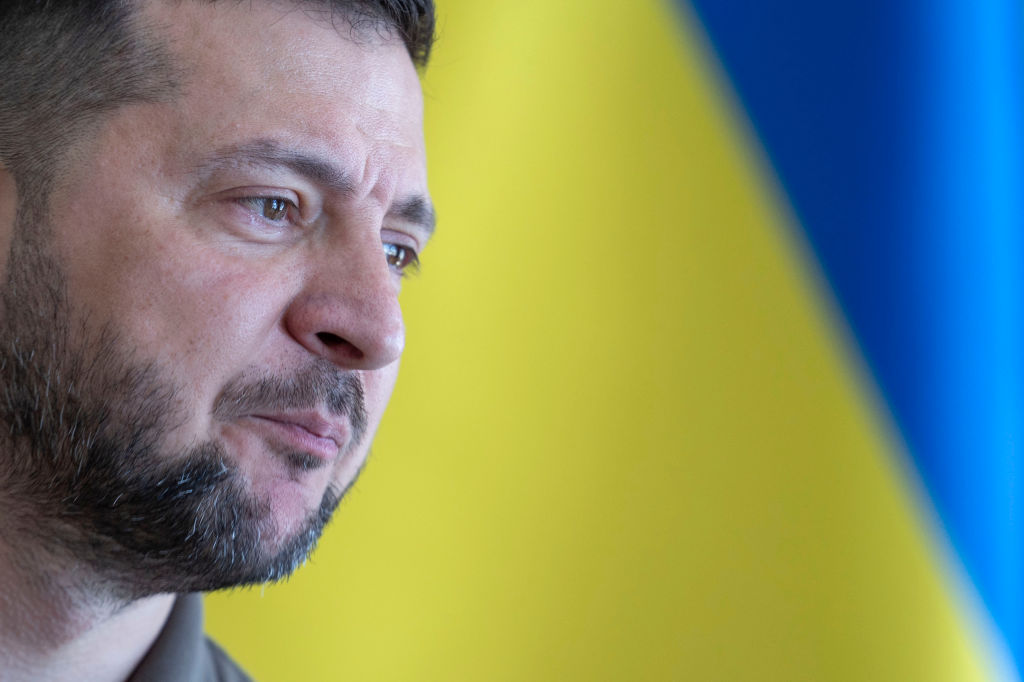 Should Ukraine be admitted to NATO?
Should Ukraine be admitted to NATO?Talking Point With this week's Vilnius summit, Ukraine's possible accession to the military alliance is more than a little top of mind